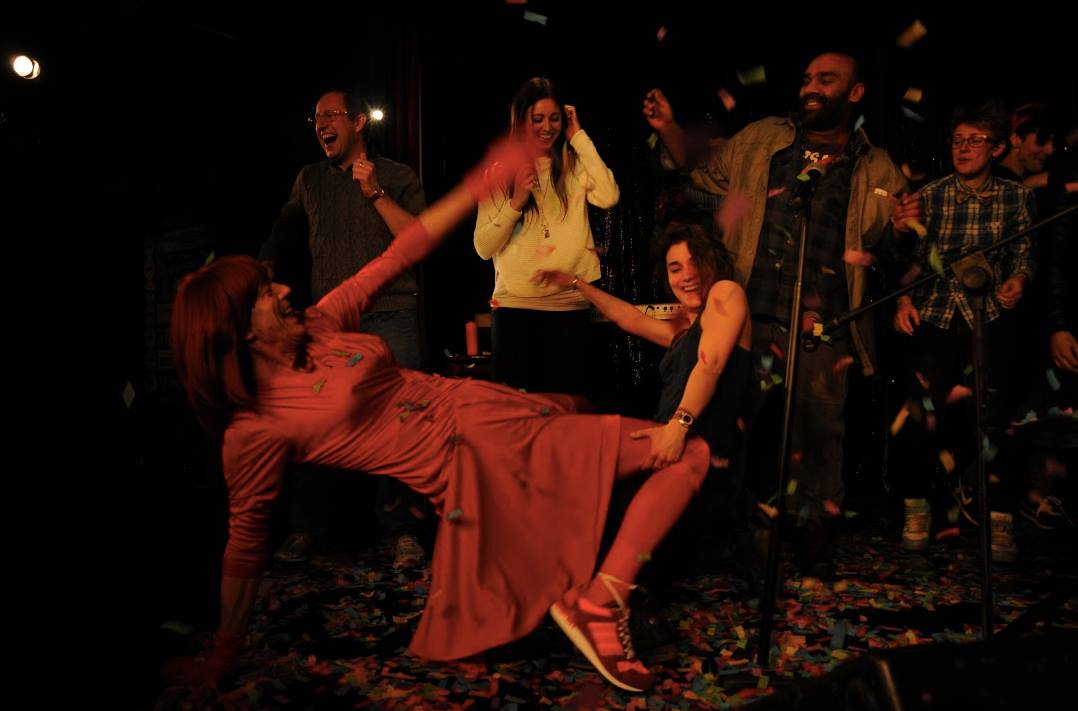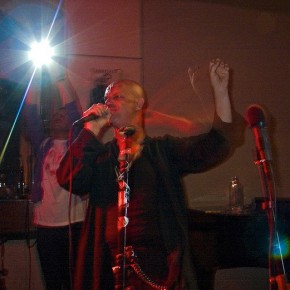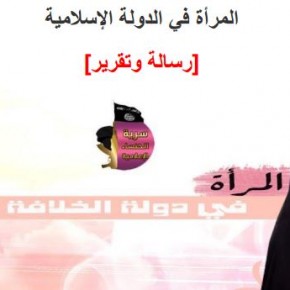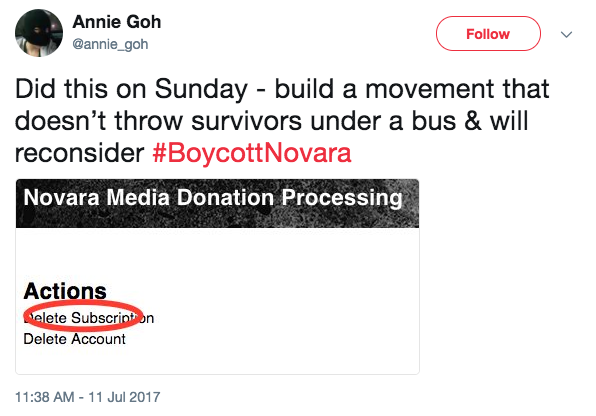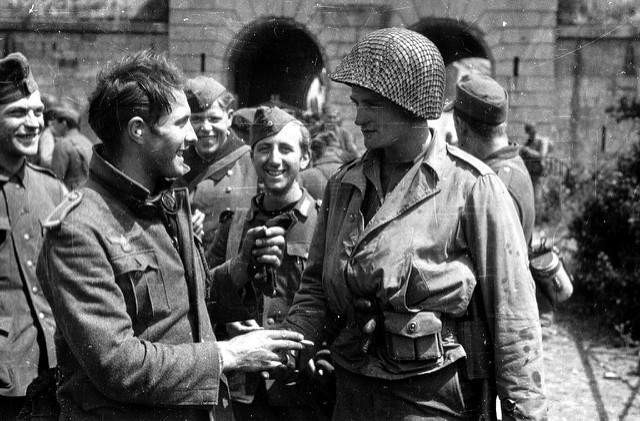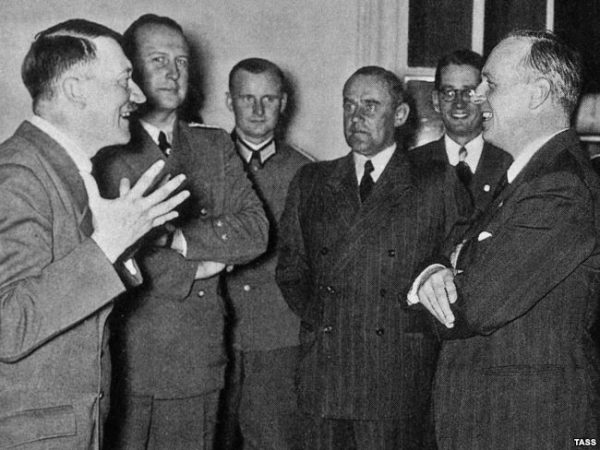Last Saturday was the launch of The Homocaust, a 70th anniversary cabaret, organized by Never Again Ever! Late February marks the anniversary of when the Nazi Party launched its purge of homosexual (gay, lesbian, and bisexual; then known as “homophile”) clubs in Berlin, outlawed sex publications, and banned gay groups. The cabaret was led by LGBTQI survivors of the Nazi Holocaust, their grandchildren, and their allies. Personally, I was thrilled to see historians, speakers, and performers coming together to remember the dead, and celebrate those fighting for LGBTQI rights today.
The event was thrilling to watch, as we heard short talks from speakers as diverse as representatives from the Black Triangle Campaign, Kindertransport survivor Ruth Barnett, David Lewis of Lesbians and Gays Support the Miners, Peter Tatchell of the Peter Tatchell Foundation. It was also rowdy. Barnett was dressed completely in red to be a spotlight. Lewis brought a classic “Pits and Perverts” t-shirt. Confetti cannons were fired at individual speakers once they finished. This is in line with the overall philosophy of Never Again Ever! We want to unlock the Holocaust as a compulsion to protest against injustice, but we also want to have fun. Holocaust piety has many negative results, both politically and emotionally, but it also traps us in a web of formality that prevents us from actually living our lives. Isn’t it time for us to indulge in the things that make our time here worthwhile?

Hostess Zee Ahmed was grateful for the event, saying that “the great thing about Never Again Ever! is that it can be both intelligent and fabulous at the same time. We just had an event that featured testimonials from Holocaust survivors at the same time that confetti rained down on them. I can think of no better way to rethink the Holocaust. Yes, it is a serious topic, and yes, it deserves respect. But this isn’t disrespect. It’s a refusal to be defined by the pain of what happened, which is exactly the point.”

Attendant Leon Fleming agreed, calling it a “thought-provoking and inspiring afternoon” that was a “fab time.” “I got to sit next to Peter Tatchell,” he said excitedly, “I refrained from gushing. I also met David Lewis, one of the original (and continuing) members of Lesbians and Gays Support the Miners! Great, awe inspiring speakers and wonderful queer cabaret!” Ray Hatten agreed with him, emphasizing that “this coming together of like-minded activists all promoting different aspects of injustice is too good to end after 2015. It needs to go on until the general public are woken up out of their denial and indifference as bystanders and become upstanders to join us in doing something to prevent injustice, oppression, violence and genocide.”
Barnett laughed that “the purple sparkling table cloths and twinkling lights were immediately welcoming and the confetti guns was a brilliant idea – symbolising the turning of destructive weapons into something joyful and celebratory.” She went on to praise the various speakers at the event. “My sons were most moved and amazed that all the performers and organisers were so completely devoid of rage, vengeance and bitterness. I see this as a manifestation of how victims can process their trauma to reclaim their energy and put it to good use on behalf of others – a way of renewing life!” Speaking on the final act, which involved a gay anthem by Gloria Gaynor, she confessed that “the end song and dance to “We will survive!” is ringing in my ears.” Mine too.
Photographs courtesy of the author.
